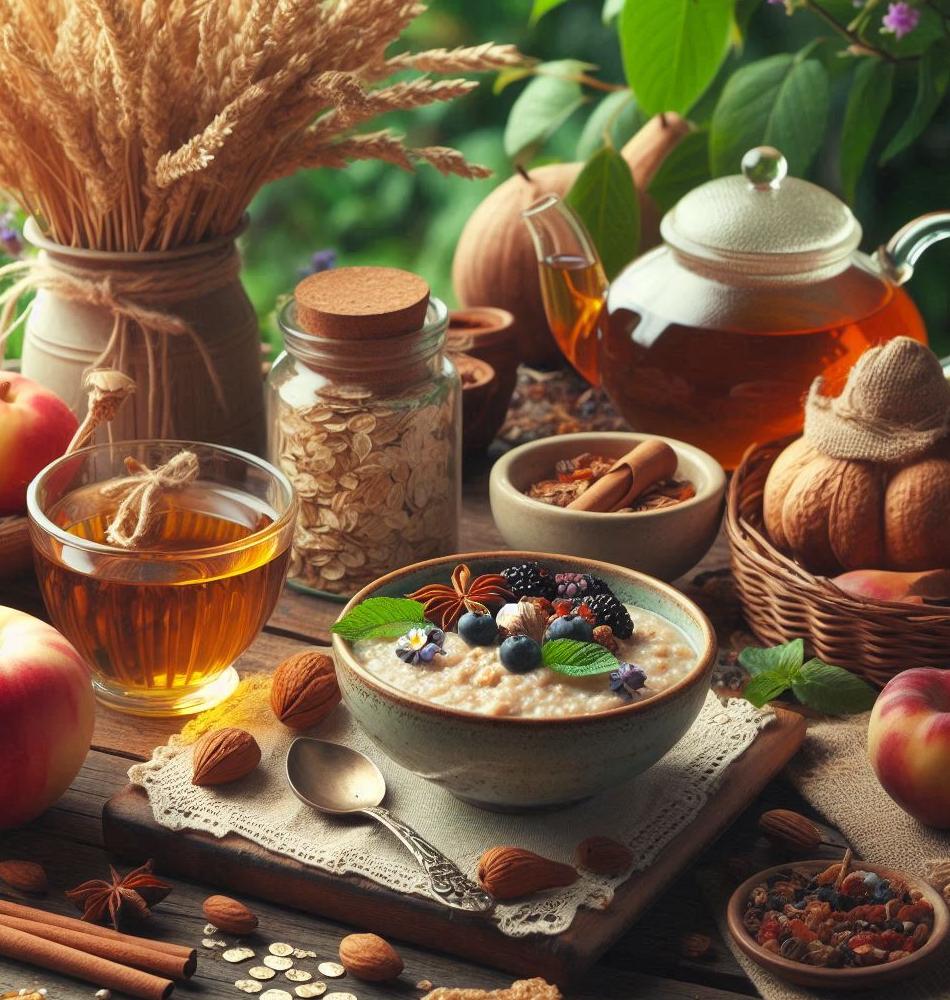Discover the best dietary choices to make when dealing with intestinal inflammation. From soothing soups to gentle grains, learn how to nourish your body while minimizing discomfort.
Introduction 📝
Dealing with intestinal inflammation can feel like a never-ending battle. Whether it's caused by a condition like Crohn's disease or ulcerative colitis, the discomfort can impact daily life significantly. During flare-ups, knowing what to eat becomes paramount for recovery and comfort. In this article, we will explore the best food choices when your intestines are inflamed. Taking care of your gut is essential for finding relief and improving overall well-being.
Understanding Intestinal Inflammation 🔍
Intestinal inflammation refers to the swelling, irritation, or inflammation of the intestinal lining. It can lead to various gastrointestinal symptoms and can be triggered by a number of factors, including infections, autoimmune disorders, or food intolerances. Recognizing the signs of inflammation can guide your dietary choices.
Common Symptoms of Intestinal Inflammation 🌡️
- Abdominal pain and cramping- Diarrhea or constipation- Bloating and gas- Fatigue- Unexplained weight loss
Foods to Consider When Your Intestines Are Inflamed 🍽️
When it's time to recalibrate your diet amidst intestinal turmoil, opting for gentle, nourishing foods can make all the difference. Let’s delve into the types of food and meals that can help soothe your system.
Broths and Soups 🌿
Warm, comforting broths and soups can be exceptionally beneficial:- Chicken or vegetable broths: These provide hydration and electrolytes without irritating the gut.- Pureed soups: Pumpkin, carrot, or squash soups can be easily digested and nutritious.
Just Right Grains 🍚
Whole grains can be difficult during a flare-up, but some options can still be friendly:- White rice: Easy to digest and can be combined with broth for a soothing meal.- Oatmeal: Gentle and packed with soluble fiber, oatmeal can help regulate digestion.
Vegetables That Won't Tangle Your Tummy 🥕
When selecting vegetables, be mindful of your body’s reactions:- Cooked veggies: Steamed carrots, zucchini, and spinach are gentle and nourishing.- Avoid high-fiber raw vegetables: These can aggravate inflammation.
Lean Proteins 🐔
Incorporating lean proteins can help maintain your strength without causing discomfort:- Skinless chicken: This is an excellent option and can be enjoyed in broth or soup.- Fish: Omega-3 rich salmon has anti-inflammatory properties.
Foods to Avoid During Intestinal Flare-ups 🚫
Not all foods are friendlier for an inflamed intestine. Here's a brief list to steer clear of:- Dairy products: Full-fat and hard cheeses may provoke symptoms.- High-fiber foods: Beans, raw fruits, and whole grains can exacerbate inflammation.- Spicy and fatty foods: These can irritate the intestine further.
Hydration Matters 💧
Staying hydrated is crucial, especially if experiencing diarrhea. Here are hydration tips to keep you on track:- Water: Aim for 8-10 cups a day.- Herbal teas: Chamomile or peppermint can be soothing.- Electrolyte drinks: Opt for light options without added sugars.
Supplements to Consider 💊
Sometimes, whole foods alone are not sufficient, and supplements can be beneficial if taken under the guidance of a healthcare provider:- Probiotics: These can support gut health and reduce inflammation.- Turmeric: Known for its anti-inflammatory properties, this can be taken as a supplement.
Sample Meal Plan for Intestinal Inflammation 📅
Here is a simple daily meal structure to illustrate gentle eating habits:- Breakfast: Oatmeal made with water, topped with a drizzle of honey.- Snack: Applesauce or a ripe banana.- Lunch: Chicken broth with soft rice and cooked spinach.- Snack: Herbal tea and a soft boiled egg.- Dinner: Baked fish with steamed zucchini.
Listening to Your Body 👂
Everyone's body reacts differently to foods, and it's important to keep a log of what you eat and any symptoms you experience. This can help identify potential triggers and dietary adjustments that work for you.
Frequently Asked Questions (FAQs) ❓
- What should I drink when my intestines are inflamed?- Are there specific diets recommended for inflammatory bowel disease?- How can I boost my overall gut health during a flare-up?- Does stress affect intestinal inflammation?- Can I continue my usual exercise routine while managing intestinal inflammation?
Conclusion 🥳
Managing intestinal inflammation through dietary changes can provide substantial relief and aid recovery. By focusing on soothing, well-cooked foods, and paying attention to your body's signals, you can navigate this challenging time with more ease. Remember, working closely with a healthcare professional will help you tailor a plan specific to your needs, ensuring you get back to feeling your best.
.png)






